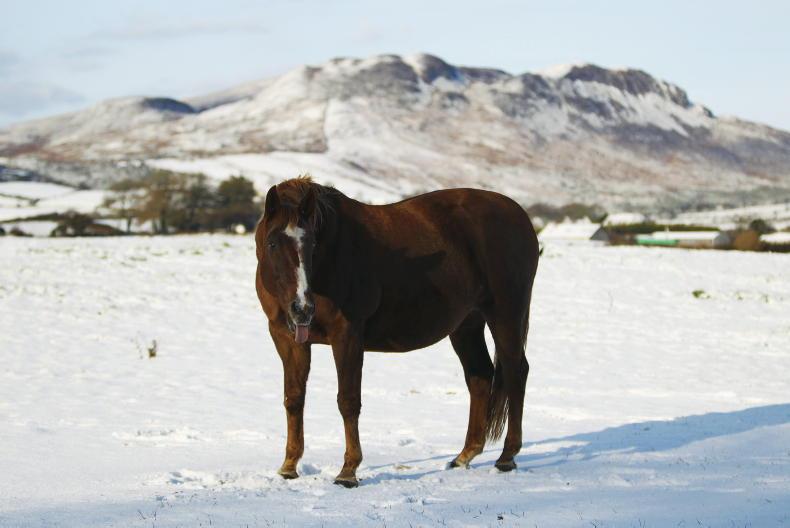I’m just getting over a dose of COVID-19. When the single pink stripe finally appeared on the antigen test on Saturday, I was straight back on the farm with the horses. What greeted me was a blue-hued frosty morning with a warm winter sun pouring its light across the sheep grazing in the fields.
The crisp Co Fermanagh air was like medicine in my still rather rasping lungs, and the little lifesaver snowdrops made me smile - messengers that there is change afoot and we can begin to see the light.
Great care
As bucolic as my return to the farm was, cold weather can be a real concern for people with livestock. This week, Minister for Agriculture, Food and the Marine, Charlie McConalogue issued a reminder to horse owners of the risks to their animals during the current cold weather. “I know that farmers and horse owners take great care of their stock throughout the year, but I would remind them that there are greater threats to animal welfare at times of extreme cold,” he stated.
“It is important that owners keep these risks in mind and take the necessary steps to protect their animals during the cold weather conditions over the coming days.”
Minister McConalogue went on to highlight the issue of water for animals in particular: “Livestock, including younger stock, can cope with low temperatures provided they have plenty of feed and shelter. Water supply can be a problem, however, for both outwintered and housed livestock and horses during freezing conditions.
“All animals need free access to water. As a starting point, supplies of drinking water should be checked daily, and surface ice broken on troughs twice per day.”
Regular inspection
On our yard, we half fill plastic bottles with water and a cup of salt and let them float in the water troughs. The water inside the bottle is less likely to freeze, so as it moves around it helps to prevent the water in the trough from freezing too.
Regular inspection of animals, especially more vulnerable animals, and sick or pregnant stock is required. During very cold and wet winter weather, additional forage should be provided for horses, ponies and any other stock outside. Avoid severe poaching of pasture as poaching impacts grass availability, and ensure that stock have access to shelter, either natural shelter such as trees and hedgerows, or a man-made shelter.
If a rug is used for a horse or donkey, ensure the rug fits correctly and is inspected regularly. Not all horses need rugs during cold weather. Horses develop a thicker coat of hair to provide natural insulation. Where a horse has a thick coat and is provided with shelter, rugs may not be required. Donkeys are less able to adjust in response to colder, winter weather however.
So take extra care of your four-legged equid friends over this cold spell, and keep yourself warm, hydrated and well while you’re at it.





SHARING OPTIONS